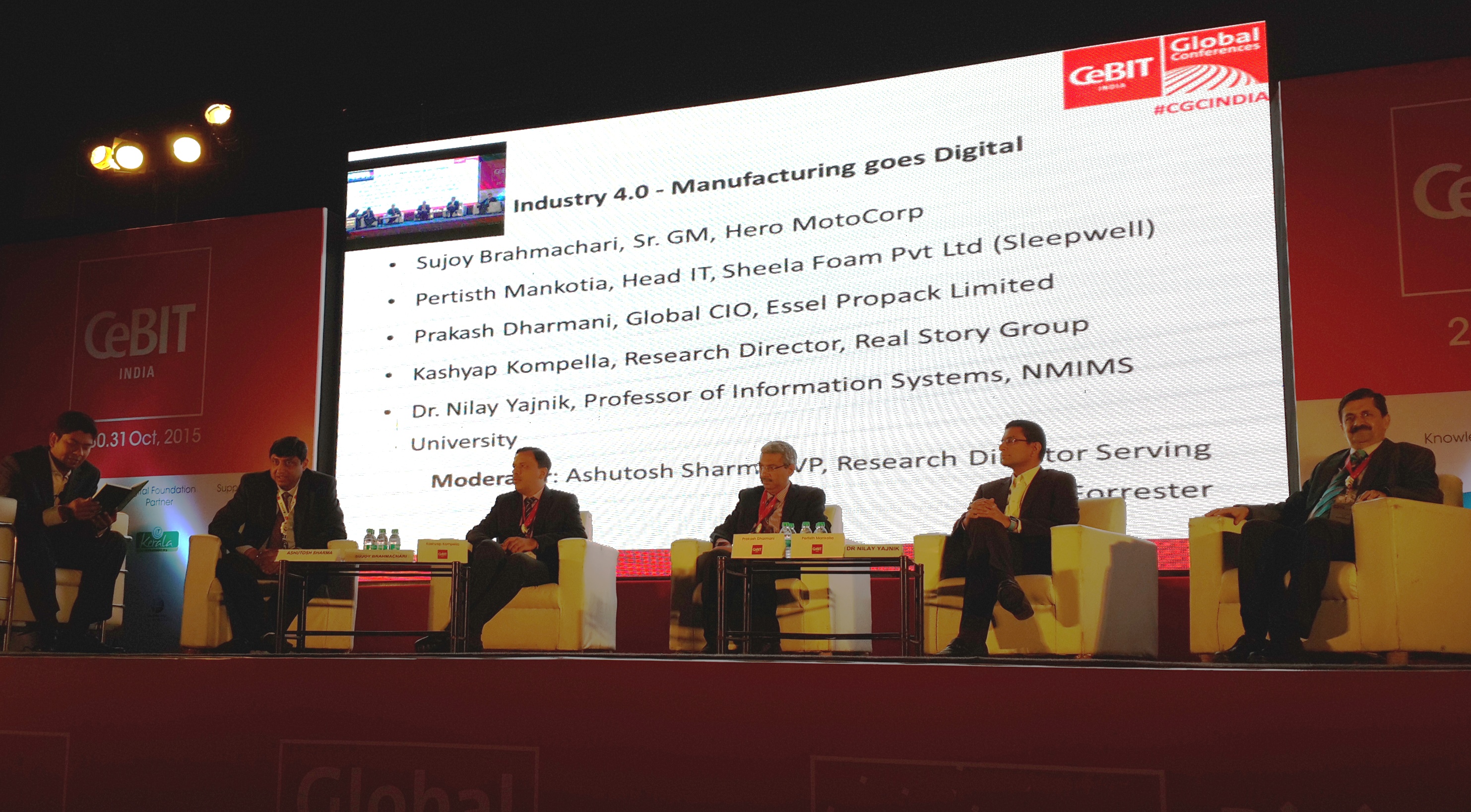–Brian Pereira
Bangalore – 31 Oct, 2015: The third and final day of the CeBIT INDIA technology show began with an interesting panel at CeBIT Global Conferences. The panel with a theme, “Industry 4.0 – Manufacturing goes Digital” had a good mix of speakers from the manufacturing sector, research and academia. Although there were a number of topics discussed, the panellists debated strongly on two key issues: Automation vs Manual labour, and the services opportunity for the manufacturing sector.
Dr. Nilay Yajnik, Professor of Information Systems, NMIMS University said, “Manufacturing has taken a backseat. We are seeing more malls (than manufacturing units) now.”
But as the manufacturing sector embraces digital technology, with sensors installed on manufacturing equipment or on delivery vehicles, there will be a lot of big data generated.
Sujoy Brahmachari, Sr. GM, HeroMoto Corp. said he sees sensors being used more in manufacturing. “Initially these were used just for alarm and alerts. So now these sensors and machines will generate a lot of data.”
All that data will call for more analytics to make sense of this data and to provide business insights. So, big data will bring in services to the manufacturing industry.
Pertisth Mankotia, Head IT, Sheela Foam said services will be a differentiator for manufacturing.
But the panel dropped a note of caution warning that the industry should do its due diligence before pursuing the services opportunity.
Kashyap Kompella, Research Director, Real Story Group said, “I would advise a lot of caution to manufacturing”.
The panel moderator, Ashutosh Sharma, VP, Research Director Serving CIOs, Forrester said, “We cannot compete with manufacturing of the world on a traditional But we have the ability to do digitlization.”
Automation vs Manpower
The panel also discussed the issues faced with labour, notably shortage of skilled labour, high labour costs and a tough regulatory environment. They discussed how automation could solve some challenges. But the panel also argued that automation should not reduce job opportunities.
“In India we need technology that brings down manual intervention. We need to introduce more automation. Labour costs are high and the laws are more stringent, so we need to bring down the dependence on labour,” said Prakash Dharmani, Global CIO, Essel Propack.
Automation is also important for producing high output.
“We produce one motorcycle every 18 seconds, so automation is important when you are playing the volume game,” said Sujoy Brahmachari, Sr. GM, HeroMoto Corp.
But Kompella argued that there is a “societal aspect” that goes against automation in India. “We do not want to automate fully as it will reduce job opportunities,” he said.
While automation and technology offer benefits how then do we adopt it without reducing manual labour?
Dr. Nilay Yajnik came up with a brilliant concept.
“Industry 4.0 in the Indian context does not have to copy the US or Germany. In India we need to have our own approach to upsize not downsize and reduce labour. Use automation for generating more business opportunities — for more upsizing,” advised Dr. Yajnik.
———————————————————————————









